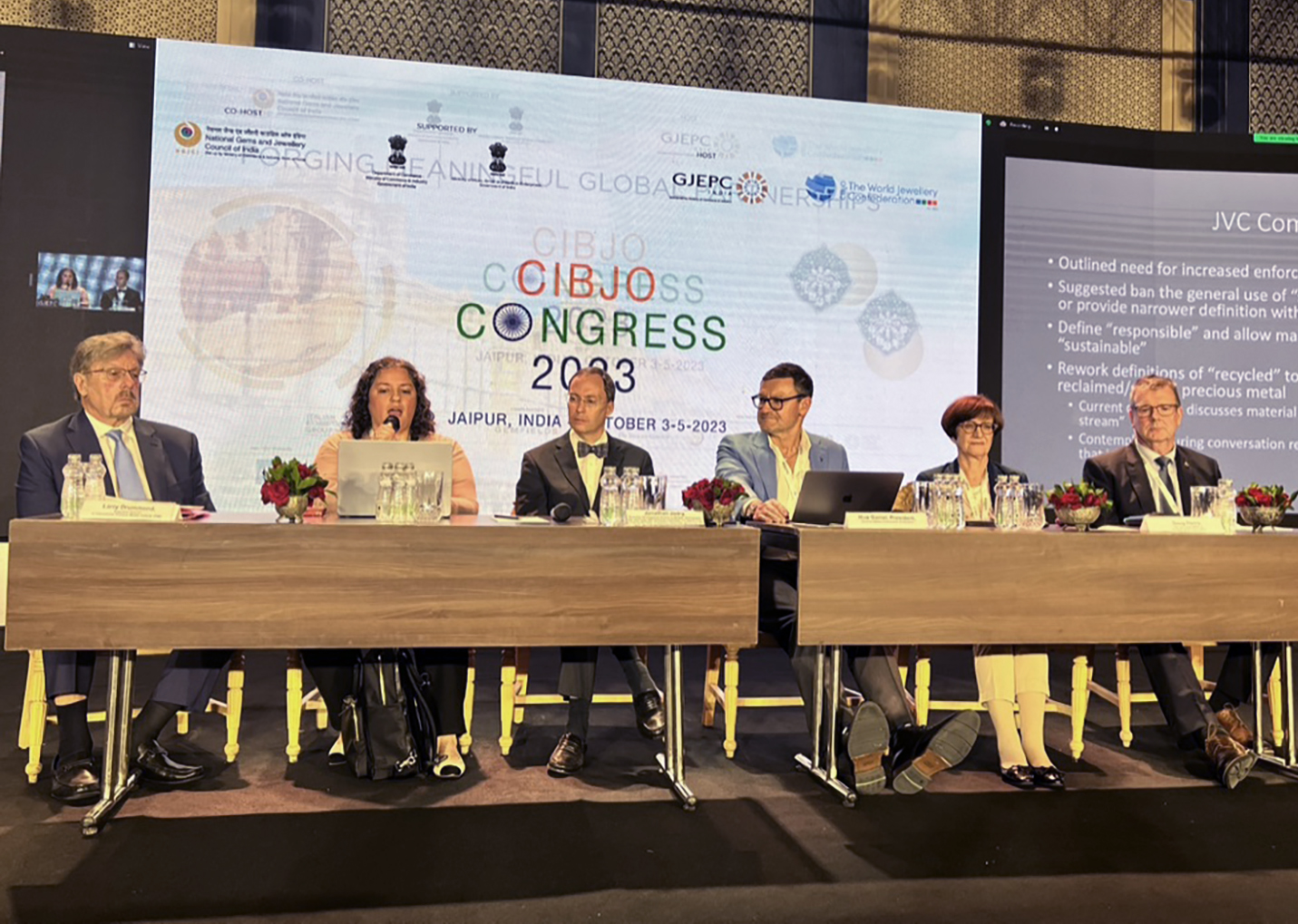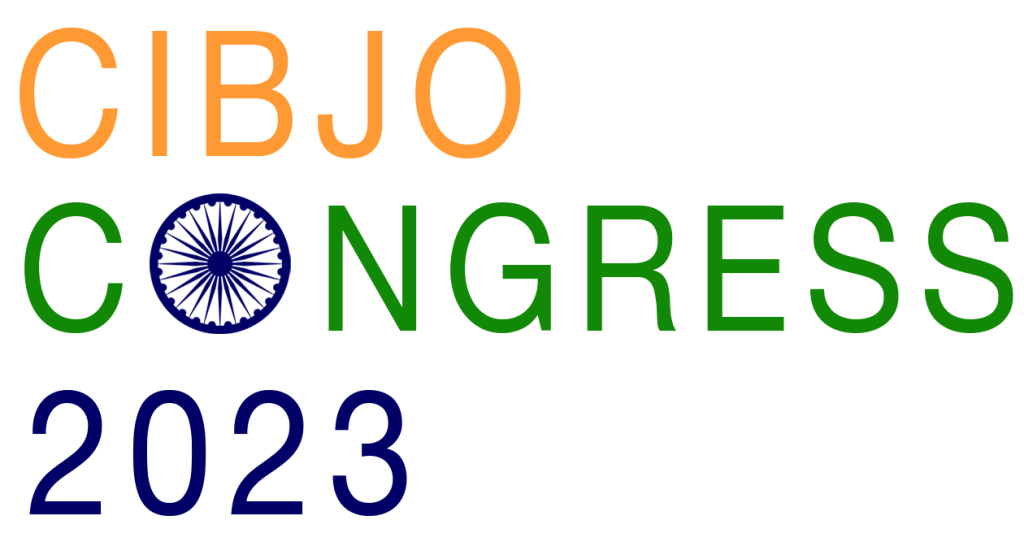Precious Metals Commission considers issues
related to environmental marketing

The Precious Metals Commission in session on October 4 (from left): Larry Drummond, Executive Director at International Precious Metals Institute (IPMI); Sara Yood, Deputy General Counsel, JVC; Jonathan Jodry, Business Development Director at Metalor Technologies SA, and Chair, ISO Technical Committee 174, covering the fields of jewellery, diamonds, gemstones and precious metals; Huw Daniel, President of the CIBJO Precious Metals Commisson; Karina Ratzlaff, Vice President, CIBJO Precious Metals Commisson; and Doug Henry, CEO and Assay Master of the Birmingham Assay Office.
OCTOBER 5, 2023
During the session of the Precious Metals Commission on October 4, 2023, the second day of the congress, a range of issues related to the sector were raised, including new regulations in the United States related to making environmental claims when marketing jewellery, recycled gold, and impacts on health of certain metals.
The Precious Commission panel was chaired by Platinum Guild International CEO Huw Daniel, supported by Vice President Karina Ratzlaff.
Sara Yood, Deputy General Counsel at the Jewelers Vigilance Committee (JVC) reported that the organisation is awaiting guidance from the U.S. government’s Federal Trade Commission on environmental marketing.
Based on its survey of members, Ms. Yood said that its advice was not to use the term “sustainability” in marketing jewellery pending guidance from the FTC or based on their definition of the term.
The Federal Trade Commission’s Green Guides Review began in December 2022.
The JVC submitted, along with 16 additional signatories, including CIBJO, proposals intended to strengthen the jewellery industry’s position on the importance of truth and fairness in environmental marketing claims.
Of note in the JVC submission included feedback on the definition of “recycled”, which currently only applies to products intentionally diverted from the waste stream.
From the JVC submission, “The inherent value of the products used in the jewellery industry meant that almost all of the component parts used to make fine jewellery are reused in the jewellery life cycle.
“Fine jewellery components, including gemstones and precious metal, are holders of wealth (and sometimes treated as commodities); there are thousands of years of tradition of reusing, recycling, and passing down jewellery through generations.
“Rarely does this material get discarded. Precious metals and gemstones will be refined, recut, and reused over and over again.”
Yood said during the panel that while nothing in precious jewellery was wasted because of its inherent value, fast fashion jewellery was often thrown away.
“Fast fashion products end up in the ground; jewellery products start in the ground and stay out,” the JVC submission said.
JVC asked specifically for the FTC to either refine their definition of recycled, or provide the industry with alternative terminology, such as “repurposed”, “reprocessed” or “reclaimed”.
Jonathan Jodry, Chair, ISO Technical Committee 174 for the International Organization for Standardization (ISO), said he expected to report back to the CIBJO Congress next year on results of a project to investigate whether standards on responsible sourcing of precious metals, including recycling, are in line with ISO standards.
In another presentation, Birmingham Assay Office called for implementation of standards to reduce risks to consumers from hypersensitivity to gold that may be linked to allergic reactions to nickel and cobalt, which can be used in gold alloys.
“The impact of allergens on society is immense,” Doug Henry, CEO and Assay Master of the Birmingham Assay Office, said.
He referred to increased costs to healthcare and risks of market impact to the jewellery industry.
Mr Henry spoke of a need for international standards, and advocated clearer labelling in order to protect consumer interests and reduce risks of allergenic reactions.
In an address by its Executive Director Larry Drummond, the International Precious Metals Institute appealed for more collaboration with CIBJO on events and in dissemination of information to members of both organisations.


